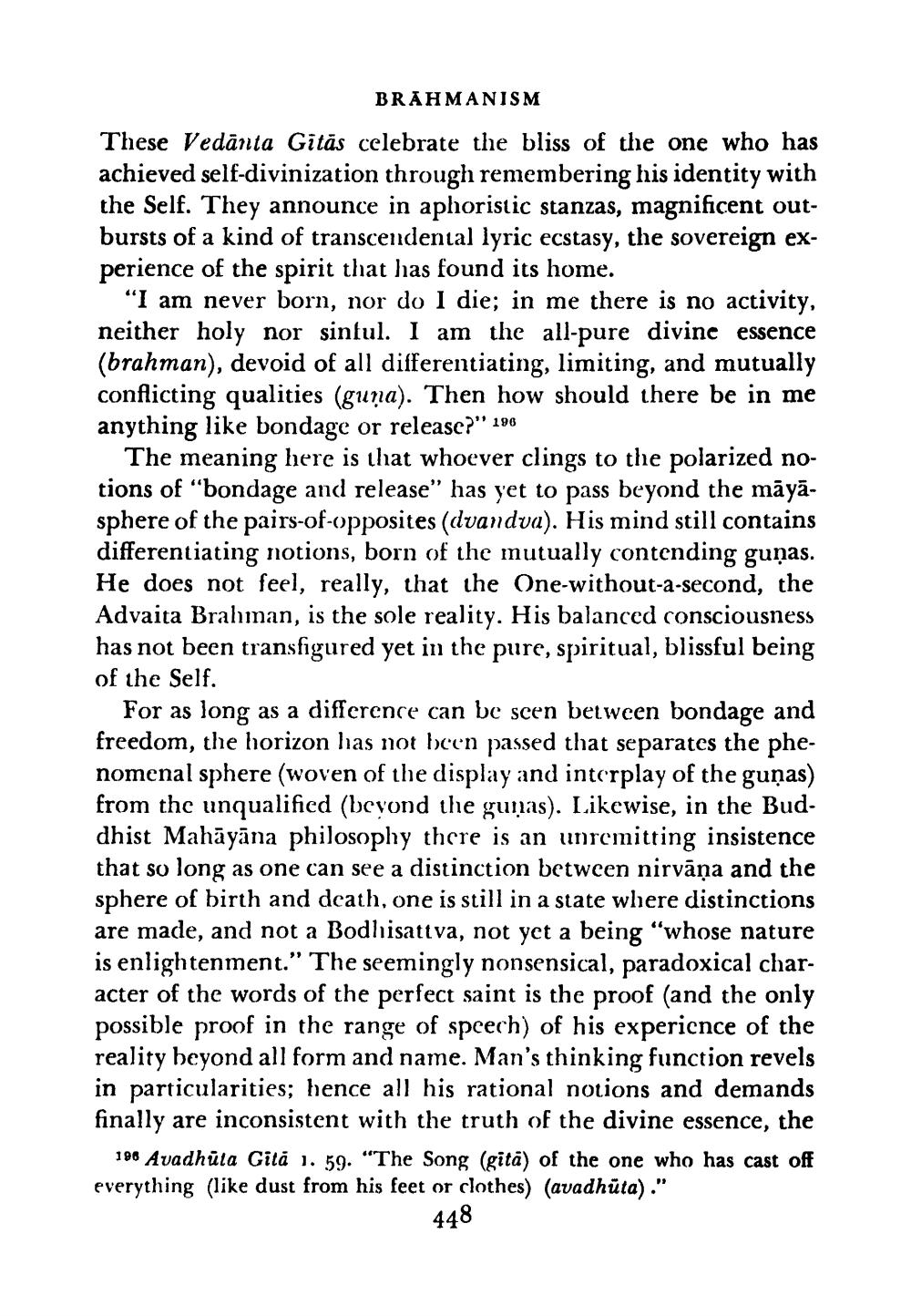________________
BRAHMANISM
These Vedānta Gitās celebrate the bliss of the one who has achieved self-divinization through remembering his identity with the Self. They announce in aphoristic stanzas, magnificent outbursts of a kind of transcendental lyric ecstasy, the sovereign experience of the spirit that has found its home.
“I am never born, nor do I die; in me there is no activity, neither holy nor sinful. I am the all-pure divine essence (brahman), devoid of all differentiating, limiting, and mutually conflicting qualities (guna). Then how should there be in me anything like bondage or release?" 196
The meaning here is that whoever clings to the polarized notions of "bondage and release" has yet to pass beyond the māyāsphere of the pairs-of-opposites (dvandva). His mind still contains differentiating notions, born of the mutually contending guņas. He does not feel, really, that the One-without-a-second, the Advaita Brahman, is the sole reality. His balanced consciousness has not been transfigured yet in the pure, spiritual, blissful being of the Self.
For as long as a difference can be scen between bondage and freedom, the horizon has not been passed that separates the phenomenal sphere (woven of the display and interplay of the guņas) from the unqualified (beyond the gunas). Likewise, in the Buddhist Mahāyāna philosophy there is an unremitting insistence that so long as one can see a distinction between nirvāṇa and the sphere of birth and death, one is still in a state where distinctions are made, and not a Bodhisattva, not yet a being "whose nature is enlightenment." The seemingly nonsensical, paradoxical character of the words of the perfect saint is the proof (and the only possible proof in the range of speech) of his experience of the reality beyond all form and name. Man's thinking function revels in particularities; hence all his rational notions and demands finally are inconsistent with the truth of the divine essence, the
196 Avadhula Gitä 1. 59. “The Song (gita) of the one who has cast off everything (like dust from his feet or clothes) (avadhüta)."
448




